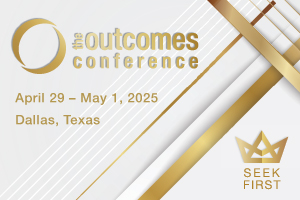
7 Christian Workplace Trends in 2025 By Al Lopus

Significant Christian Workplace Trends You Need to Know
How can a Christian workplace survive and thrive in an era of increasing secularization and rapid change?
As we enter 2025, Christian workplace leaders face an evolving landscape shaped by technological advancements, cultural shifts, and the lingering challenges of an increasingly secularized society. Christian organizations must navigate these complexities while staying rooted in their mission, cultivating faith-driven environments, and promoting organizational flourishing. Below, we unpack seven key workplace trends shaping Christian-led organizations and offer a call to action for leaders to embrace intentional strategies for thriving in the years ahead.
1. Hybrid Work Environments Continue to Evolve
The hybrid work model, combining remote and in-office work benefits, will remain dominant in 2025. While some major corporations are mandating full-time office returns, others, like Chick-fil-A with its “Flexible Futures” model, succeed with hybrid setups prioritizing collaboration and work-life balance. Christian organizations like Apartment Life have adopted fully remote operations while maintaining flourishing cultures through regular engagement and in-person gatherings. Leaders must thoughtfully evaluate their work models, leveraging flexibility to enhance engagement while safeguarding organizational unity.
2. AI and Automation Integration Transforms Work
Artificial Intelligence (AI) and automation are reshaping workplaces, streamlining administrative tasks, and enabling staff to focus on mission-critical roles. Examples abound, from Compassion International using AI for sponsorship matching to Wheaton College integrating AI-powered academic advising alongside personal mentorship. While these innovations improve efficiency, they demand ethical oversight to ensure privacy and uphold Christian values. Organizations are also adopting AI tools in recruitment, significantly enhancing talent acquisition processes. Leaders should embrace AI thoughtfully, ensuring its use aligns with their mission and ethical commitments.
3. Prioritization of Mental Health and Employee Well-Being
In 2025, mental health and employee well-being will be paramount. Christian organizations are championing holistic wellness initiatives, including spiritual retreats, access to counseling, and resources for resilience. Biola University and Samaritan’s Purse exemplify this trend by integrating mental health support into their cultures. Financial wellness is also gaining traction as inflation continues to impact employees. Resources like financial coaching or assistance programs alleviate stress and foster engagement and loyalty. Leaders should actively promote wellness and create supportive environments where employees can thrive spiritually, emotionally, and financially.
4. Upskilling and Continuous Learning Take Center Stage
The rapid pace of technological and societal change necessitates ongoing upskilling. Christian organizations invest in digital literacy workshops, leadership development programs, and spiritual growth training to ensure their staff remain equipped for the challenges ahead. Examples like the National Christian Foundation’s leadership competency programs demonstrate the importance of fostering professional and spiritual growth. Continuous learning enhances operational excellence and aids in talent retention, as 94% of employees report staying longer with organizations that invest in their development. Leaders must prioritize learning to ensure both mission fulfillment and staff satisfaction.
5. Redefining DEI Initiatives with Biblical Values
Diversity, Equity, and Inclusion (DEI) are being reimagined within Christian organizations to reflect biblical principles of unity and justice. International Justice Mission’s “Kingdom Diversity” Framework and Life.Church’s forums on racial reconciliation exemplify a shift from secular DEI models toward Christ-centered approaches. These initiatives focus on mentorship, fostering inclusion, and addressing systemic injustices within a faith-driven context. Leaders should cultivate environments embodying God’s creation’s diversity, emphasizing justice and unity to reflect the Kingdom’s vision.
6. The Rise of the Gig Economy
The gig economy continues to grow, with Christian organizations increasingly relying on freelancers and contractors for specialized tasks. NGOs like World Vision and businesses such as Hobby Lobby utilize gig workers for grant writing, digital marketing, and IT projects, offering flexibility and efficiency. With a significant portion of the workforce engaged in freelance roles, organizations can tap into this trend to adapt quickly to shifting needs while maintaining cost-effectiveness. Leaders should consider gig work a strategic component of their workforce planning to address evolving demands.
7. Emphasis on Values-Driven Leadership
Values-driven leadership remains a cornerstone for Christian workplaces in 2025. Employees are drawn to leaders who embody the organization’s faith-based mission, promoting integrity, compassion, and servant-heartedness. From Chick-fil-A’s integration of faith in its operational culture to Calvary Christian Academy’s (Fort Lauderdale) commitment to values-based hiring, these examples demonstrate the power of leading with purpose. Deloitte reports that 77% of employees value organizational purpose, underscoring the importance of this trend. Leaders should exemplify Christ-like values to inspire trust, foster engagement, and sustain a thriving culture.
The Call to Action
Christian leaders must rise to the occasion with intentionality and vision as the workplace evolves. By embracing these seven trends—hybrid work environments, AI integration, mental health prioritization, upskilling, biblical DEI frameworks, gig economy strategies, and values-driven leadership—organizations can navigate the challenges of 2025 while staying true to their mission.
Now is the time to create flourishing workplace cultures that reflect Christ’s love and purpose. Leaders must assess their organizational health, prioritize employee well-being, and adapt to technological and cultural shifts. Let’s lead boldly, serve faithfully, and build workplaces where people and mission thrive.
####
Al Lopus, co-founder and Board Chair of the Best Christian Workplaces (BCW), brings expertise, vision, and passion to organizational health within Christian-based environments. He is the author of Road to Flourishing: Eight Keys to Boost Employee Engagement and Well-being and hosts The Flourishing Culture Leadership Podcast. Al serves on the Christian Leadership Alliance Advisory Council. Learn more about Al at allopus.org

Early Registration Rates are Available through January 31, 2025!
LEARN MORE | REGISTER TODAY

What is Christian Leadership Alliance?
Christian Leadership Alliance equips and unites leaders to transform the world for Christ. We are the leaders of Christ-centered organizations who are dedicated to faithful stewardship for greater kingdom impact.




